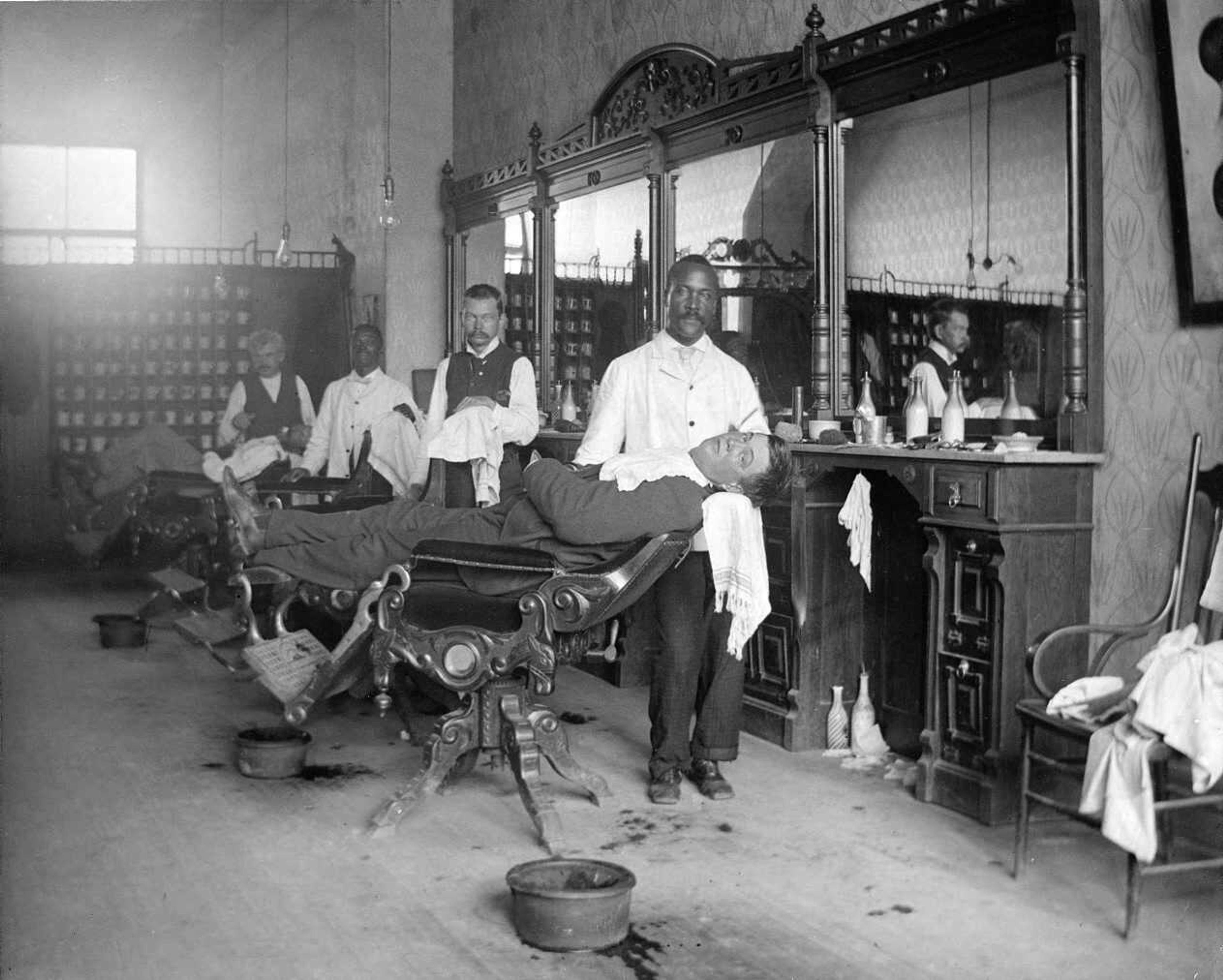The highly regarded Rowan family
Henry Rowan Sr. opened a barber business in Cape Girardeau in 1867. Rowan was born in Mississippi (circa 1842), likely enslaved. His mulatto complexion reflected a complicated family history. In freedom, skin tone may have gained him a measure of privilege in post-Civil War society, but the integrity of his character surpassed any unearned presumptions. He and his family held esteemed reputations in Cape Girardeau, from 1867 through the mid-1900s...
Henry Rowan Sr. opened a barber business in Cape Girardeau in 1867. Rowan was born in Mississippi (circa 1842), likely enslaved. His mulatto complexion reflected a complicated family history. In freedom, skin tone may have gained him a measure of privilege in post-Civil War society, but the integrity of his character surpassed any unearned presumptions. He and his family held esteemed reputations in Cape Girardeau, from 1867 through the mid-1900s.
Lee Albert's memoirs about 19th-century Cape mentioned Rowan, adding, "for years and years there were no white barbers" -- a carry-over from the town's antebellum culture. It seems an odd-sensibility -- straight razors in the hands of historically-oppressed men shaving the throats of white-majority elite and civic leaders. Writer Douglas Bristol points out, "Black barbers, reflected the only men in their community who enjoyed, at all times, the privilege of free speech. The reason lay in their temporary -- but absolute power over a client."
Mentioned often in a newspaper of the day -- Cape Girardeau Democrat's "Lead Pencil Jottings" -- Rowan's business and activities are well documented. In 1896, Rowan traveled to St. Louis to buy an outfit of barber furniture in anticipation of new quarters in the St. Charles Hotel. The refurbished shop opened in March 1897. An active member of Harmony Lodge No. 40 (Ancient Free and Accepted Masons), Rowan frequently was elected to travel to the annual Grand Lodge meetings which drew Black Masons from Missouri, Nebraska and the Indian Territories.
A celebrated musician, Rowan was a violinist and leader of a string orchestra which was in demand providing "splendid music for dances." His orchestra played the New Year's dress ball in December 1899. The event summary mentioned Rowan was one of the oldest musicians in the city and "all our dancers like to dance by his music."
Rowan was selected, in 1894, as a delegate to the Cape County Republican Convention, representing Precinct 2.
Rowan died suddenly at the age of 57. In spring 1900, after a day's work at the hotel barber shop, Henry returned home, talked a while with his wife, then went outside to the yard cistern to get a drink. Uneasy he stayed out so long, his wife Anna (nee Horrell) went out and found him seated on the back steps of the house dead... "Death was evidently easy and painless." The community expressed deep regret at his passing, eulogizing his character: "of good humor, uniformly courteous, conspicuous in his sterling honesty and integrity, esteemed and respected by all who knew him." His funeral was held at the family home and burial was at Old Lorimier Cemetery.
His sons and daughters continued the Rowan legacy of well-earned respect in the Cape community. William, Sydney and son-in-law Tobe Allen continued to operate the St. Charles Hotel barber shop for years. William "Will" became Cape's first Black postal carrier, which was indicative of Will's reputation of highest integrity. Other sons and daughters were community musicians and teachers, and son Henry Jr., a physician.
Connect with the Southeast Missourian Newsroom:
For corrections to this story or other insights for the editor, click here. To submit a letter to the editor, click here. To learn about the Southeast Missourian’s AI Policy, click here.











